Of six Super Eagles outings at the World Cup, only three have been overseen by the same coach who piloted the national team through the qualification phase.
In 2010, Nigeria's appetite for self-sabotage reared its head once again.
Following a third-place finish at the Africa Cup of Nations in February, Amodu Shaibu was dismissed as coach of the Super Eagles. It was the second time the former coach of the defunct BCC Lions would lose his job in those same circumstances.
Eight years prior he had been scapegoated for the perceived insubordination of his players; this time, his very competence and aptitude was called into question, despite his only defeats in Angola coming against Egypt and Ghana, the two countries that went on to contest the final.
That decision was the first in a chain of events that culminated in an all-too-familiar fate come the Mundial in June.
What followed was a hurried recruitment process, with the World Cup just four months away. A government-appointed Presidential Task Force (PTF) was set up for this purpose, and saddled with the brief of ensuring a befitting outing for Nigeria at the Mundial in South Africa.
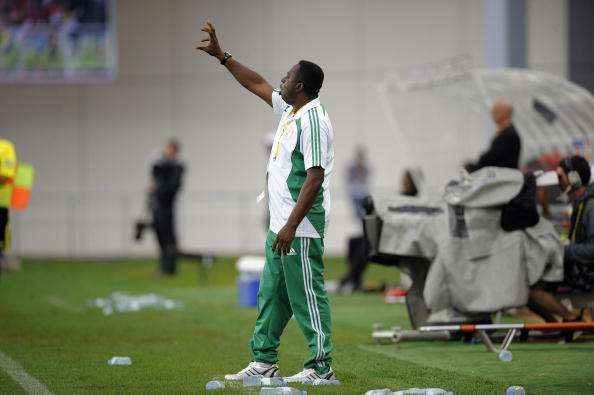 Getty Images
Getty Images
Former Senegal coach Bruno Metsu was thought to be the frontrunner for the position, along with former England and Ghana helmsmen Glenn Hoddle and Ratomir Dujkovic.
However, the entrance of 61-year-old Lars Lagerback into the race reportedly bowled members of the PTF over, as he drew on his "understanding of the challenges of Nigerian football" (in the words of erstwhile Sports ministry Director-General Patrick Ekeji), submitted a presentation on the national team's performance at the Africa Cup of Nations that was apparently deeply convincing, and also put forward a 'developmental plan'.
Despite the Nigeria Football Federation appearing to prefer Metsu, the PTF was unequivocal in its stance, strengthened by the understanding that the remuneration of the eventual appointee would be the responsibility of the Presidency directly. The board of the NFF eventually acquiesced, and Lagerback inked a five-month contract with a handsome enough salary that the erstwhile head of the Senate Sports Committee exclaimed "Monthly? It can't be!" when the figure was put to him by reporters.
The former Sweden coach, who had overseen his country's defeat of Nigeria at the 2002 World Cup (a factor that seemed to earn him some currency), took to the role with predictable gusto, making all the right noises about coming down hard on acts of ill-discipline and tardiness, stressing the need to marry Nigeria's technique with the organization required for success at international level, and bemoaning the national team's tendency to give away "cheap goals".
He also allayed fears over his reputation as a bore, describing it as "myth".
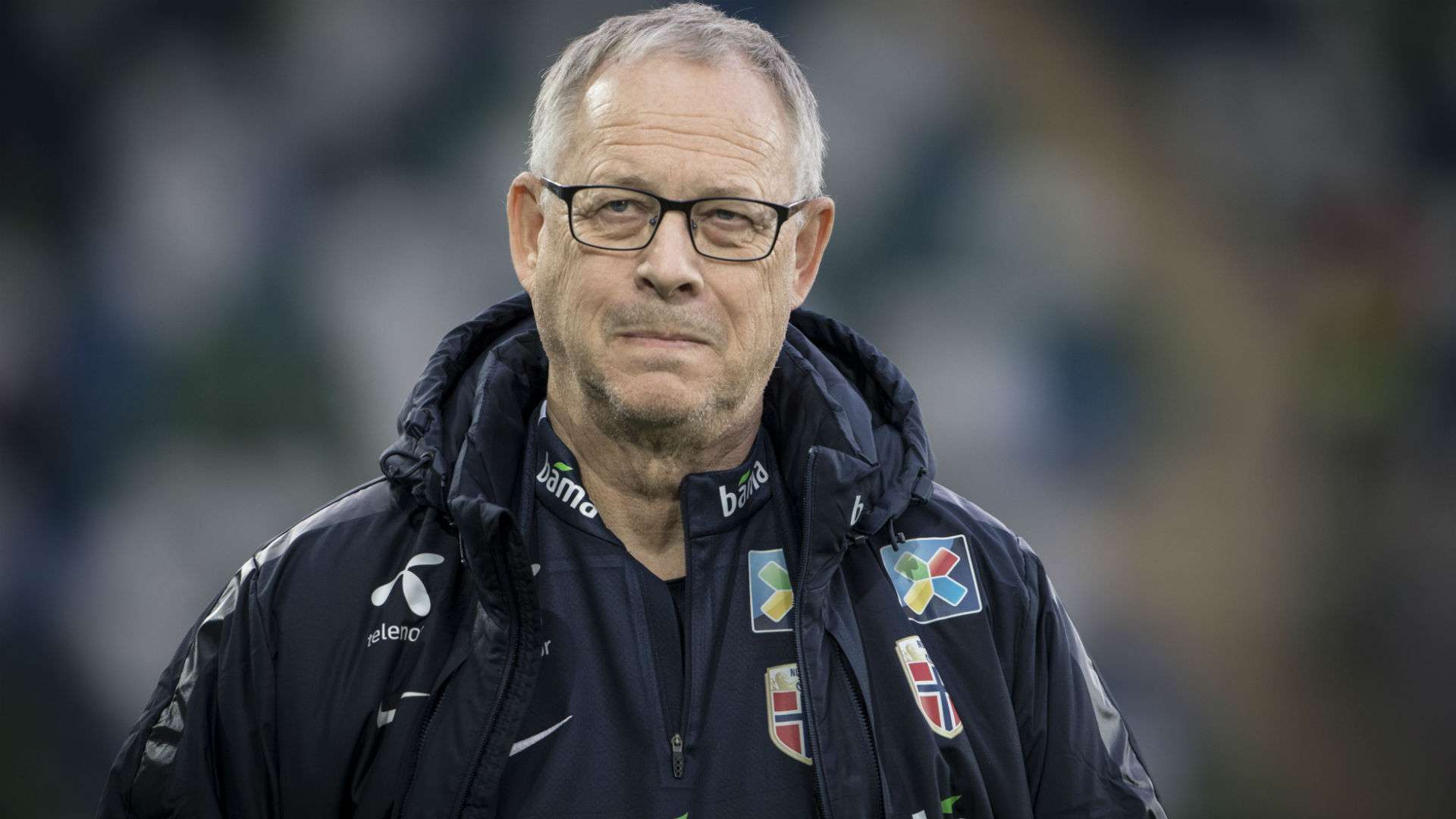 Gettyimages
Gettyimages
Lagerback's biggest hang-up, however, was physical conditioning. He absolutely insisted on it; he called out Obinna Nwaneri and Danny Shittu over a lack of playing time at club level, touted defender Michael Odibe, who was enjoying a mid-season purple patch at Serie A side Siena, for a possible call-up and threatened Super Eagles captain Nwankwo Kanu with exclusion.
He also embarked on a player recruitment drive of dual-nationality prospects, wooing the England-based duo of Victor Moses and Nedum Onuoha.
His ambitions in that regard would ultimately prove fruitless and, by the time his final 23-man list was handed in, all the usual suspects were present, including those whose club form he had forthrightly criticized. Also in the selection were former youth internationals Rabiu Afolabi and Haruna Lukman who, at 30 and 19, were on opposing trajectories in their respective careers.
A lack of fitness following surgery had seen Spain-based striker Ikechukwu Uche excluded altogether.
In early June, there came another curveball.
Chelsea's Mikel John Obi announced he would be unable to compete at the World Cup for Nigeria, citing a knee surgery that had not been fully rehabbed and stating his aversion to "wasting a slot". It was a serious blow that would further debilitate the Super Eagles' chances in South Africa.
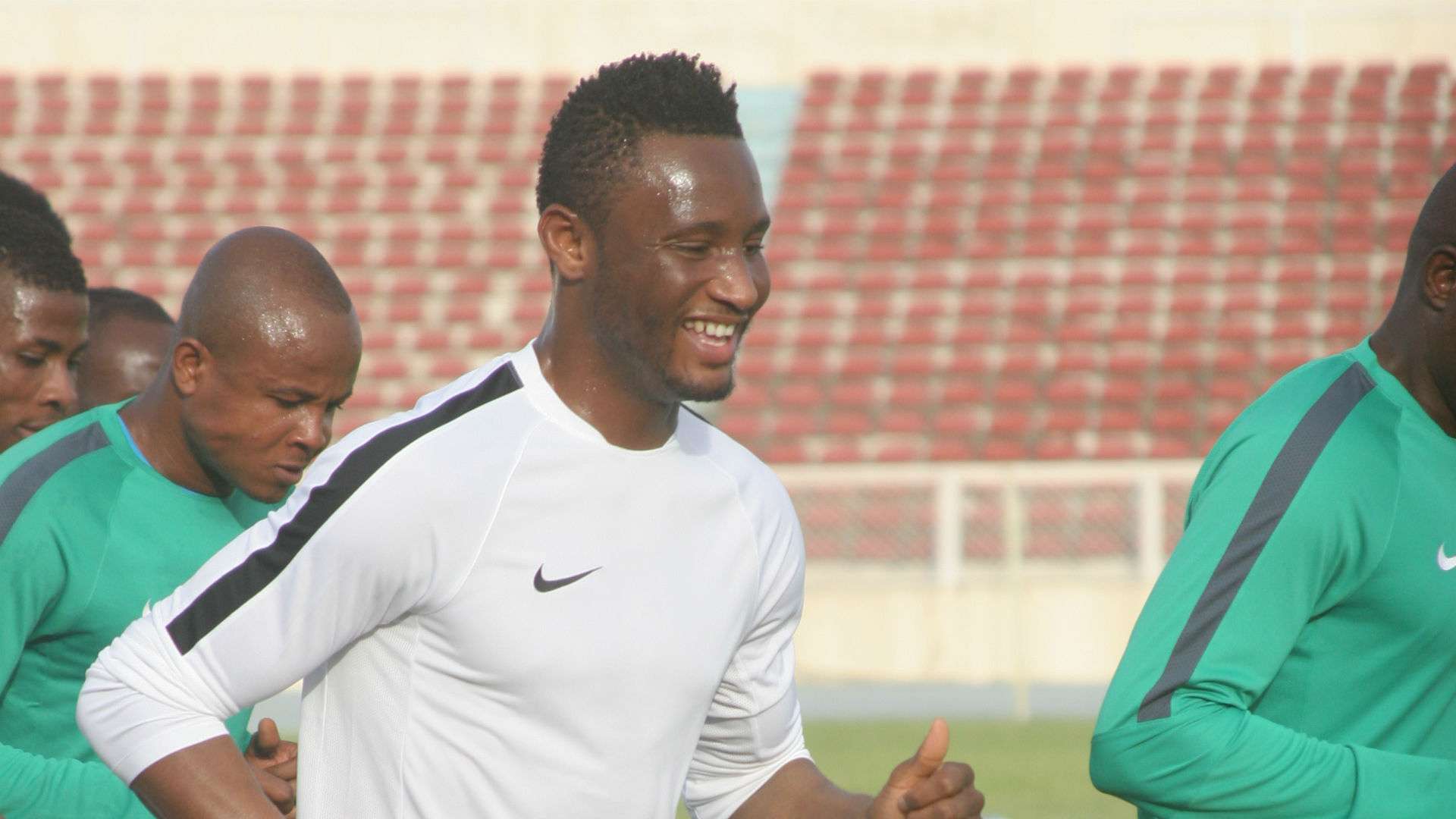 Lolade Adewuyi
Lolade Adewuyi
Lagerback, calling once again on the exhaustive knowledge of Nigerian players that had won the NFF and PTF over, recalled Brown Ideye as a replacement for the influential midfielder.
Friendly draws against Saudi Arabia and Colombia were followed by a 3-1 win over North Korea going into the tournament, but nothing could have prepared fans of the Super Eagles for the hail of shots that Argentina rained down in the opening group game.
The scoreline on the day – a respectable 1-0 defeat – was the making of Vincent Enyeama on the world stage, as time and again he thwarted Lionel Messi's malicious raids, forming a one-man firewall while Shittu and Joseph Yobo seemed to be running on 32-bit software.
However, if the outcome belied the specifics of the proceedings, Nigeria's performance was entirely predictable based on the line-up. Even with Mikel, Amodu had struggled to infuse any kind of creativity into the midfield at the Afcon. Without the Chelsea man, the play was as clunky as could be expected.
Having had little time to work with the team, Lagerback's idea was obviously to go with solidity. According to Afolabi, his focus through camping was on defending, with a great deal of repetition.
"The defenders had to work for each other. It was tough," Taye Taiwo said before the tournament – and to that end he had settled on a very compact 4-4-2 shape, relying on individual quality in attack to win out against Greece and South Korea, two notionally weaker sides.
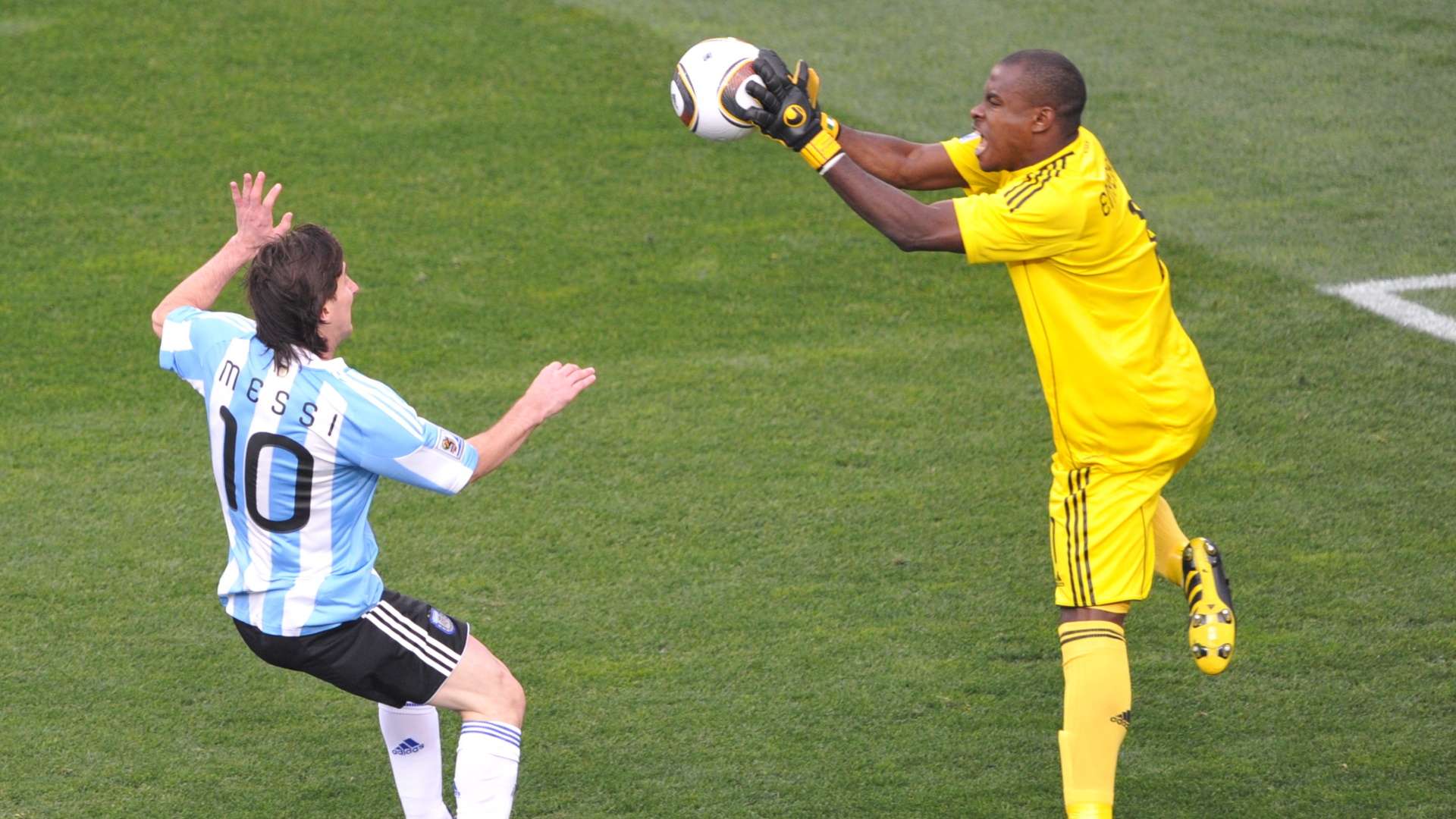 Getty Images
Getty Images
However, there was an asymmetry on the flanks: Chinedu Obasi started on the left and, on the right, defensive midfielder Sani Kaita was pressed into service in a call-back to the old Garba Lawal brief. It was an oddity that would have damaging consequences in the very next game.
Against Greece, the Super Eagles took an early lead from a set-piece, Kalu Uche – in for Obasi – whipping a low free-kick inside the far post. With Osaze Odemwingie replacing Obinna Nsofor upfront, the gears of the team's attacking play appeared to be grinding a lot smoother, and the side's structure without the ball kept them eminently comfortable without the ball.
Just after the hour mark, however, an event that has gone down in infamy effectively sounded the death knell for Nigerian hopes.
Kaita, who to that point had struggled in possession, tussled with Vasilis Torosidis by the touchline as the ball rolled out of play. Incredibly, he then proceeded to kick out unprovoked, delivering a glancing stamp to the Greek defender's thigh.
The referee flashed red; Kaita sank to his knees, hands on his head, his culpability flashed across screens all over the world.
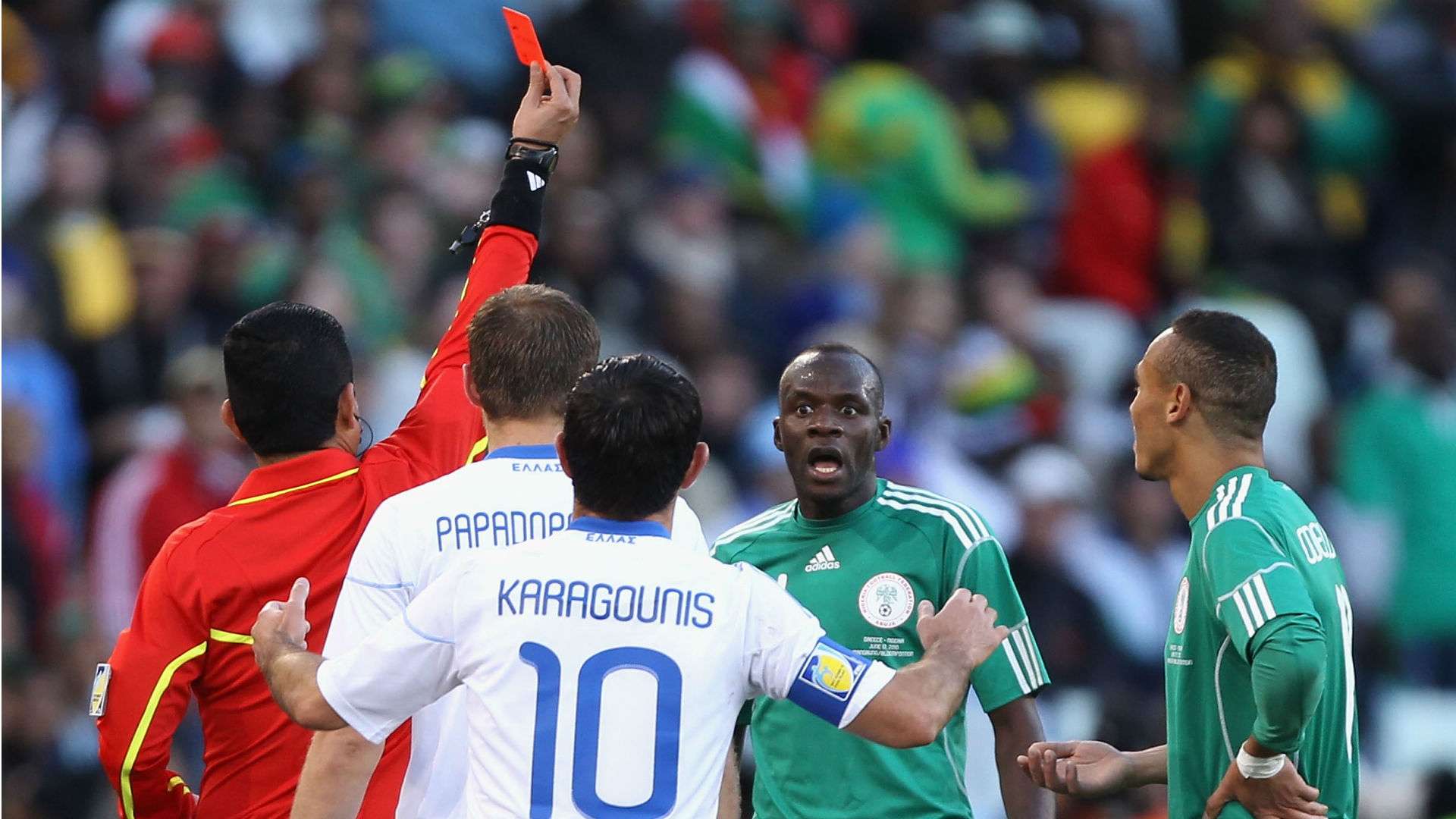 Getty
Getty
Down a man, Lagerback predictably shifted Odemwingie out wide, and then replaced him with Obasi at half-time. By that point, however, a second dose of misfortune – a wicked deflection – had pulled the Greeks back level just before the break. In a poetic twist, Torosidis would himself deliver the final blow, pouncing on an Enyeama error following interminable pressure to score with 19 minutes left.
“The turning point was the sending off of Kaita,” captain Yobo admitted afterward. “These things happen, but I think the coach did what he had to do for the remainder of the game for us to try and win.”
Improbably, even with two defeats Nigeria remained in with a chance of progress, provided they could pull off a win against South Korea in the final group game.
Here again, there was drama: for the second game running Kalu scored early, sweeping home Chidi Odiah's cross, before goals either side of half-time turned the game around in favour of the Asian side.
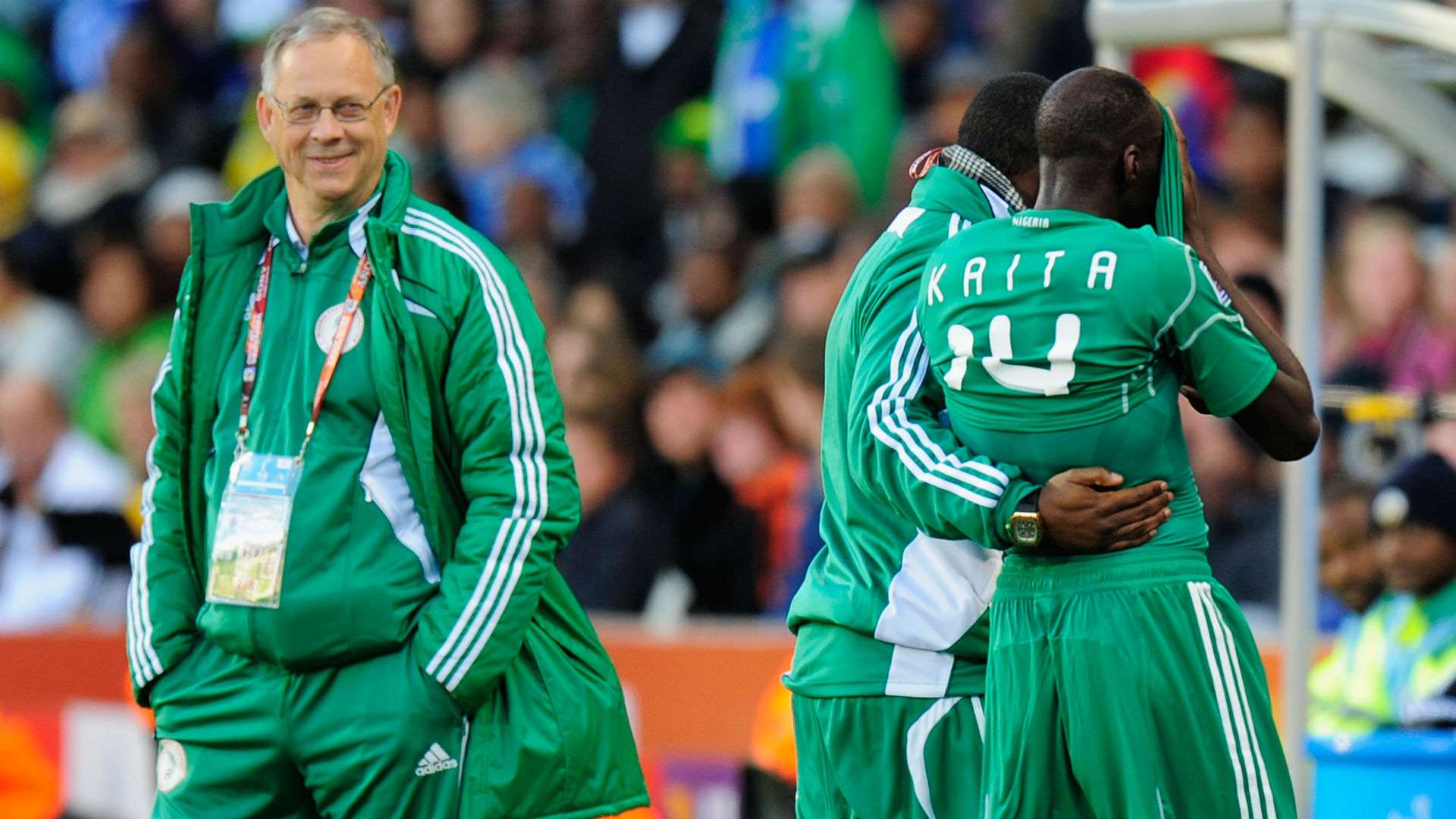 Gettyimages
Gettyimages
Then followed another infamous moment: with the Super Eagles chasing the game, Yakubu Aiyegbeni contrived to miss an open goal from a Yusuf Ayila centre inside the six-yard box.
While that miss has been held up as terminal, it is worth noting that even though Yakubu had scored, it still would not have put Nigeria into the next round. In any case, he went on to score the penalty that would tie the game and earn Nigeria's solitary point at that World Cup.
While the 2002 World Cup had seen Nigeria similarly start afresh just three months to the start of the World Cup, there was a sense then that, even with the country's best players, a group with Argentina, England and Sweden would have proved a step too far.
2010, however, seemed eminently doable. As such, this felt like the bigger waste of opportunity and, considering the outlay for Lagerback, an expensive one at that.
The Swede bore the brunt of criticism for the outcome, and duly resigned, but the myth of his ineptitude is precisely that: a myth. He realistically could not have done much more given the circumstances, and he has since mended his reputation by leading lowly Iceland to a quarter-final place at the Euros in 2016.
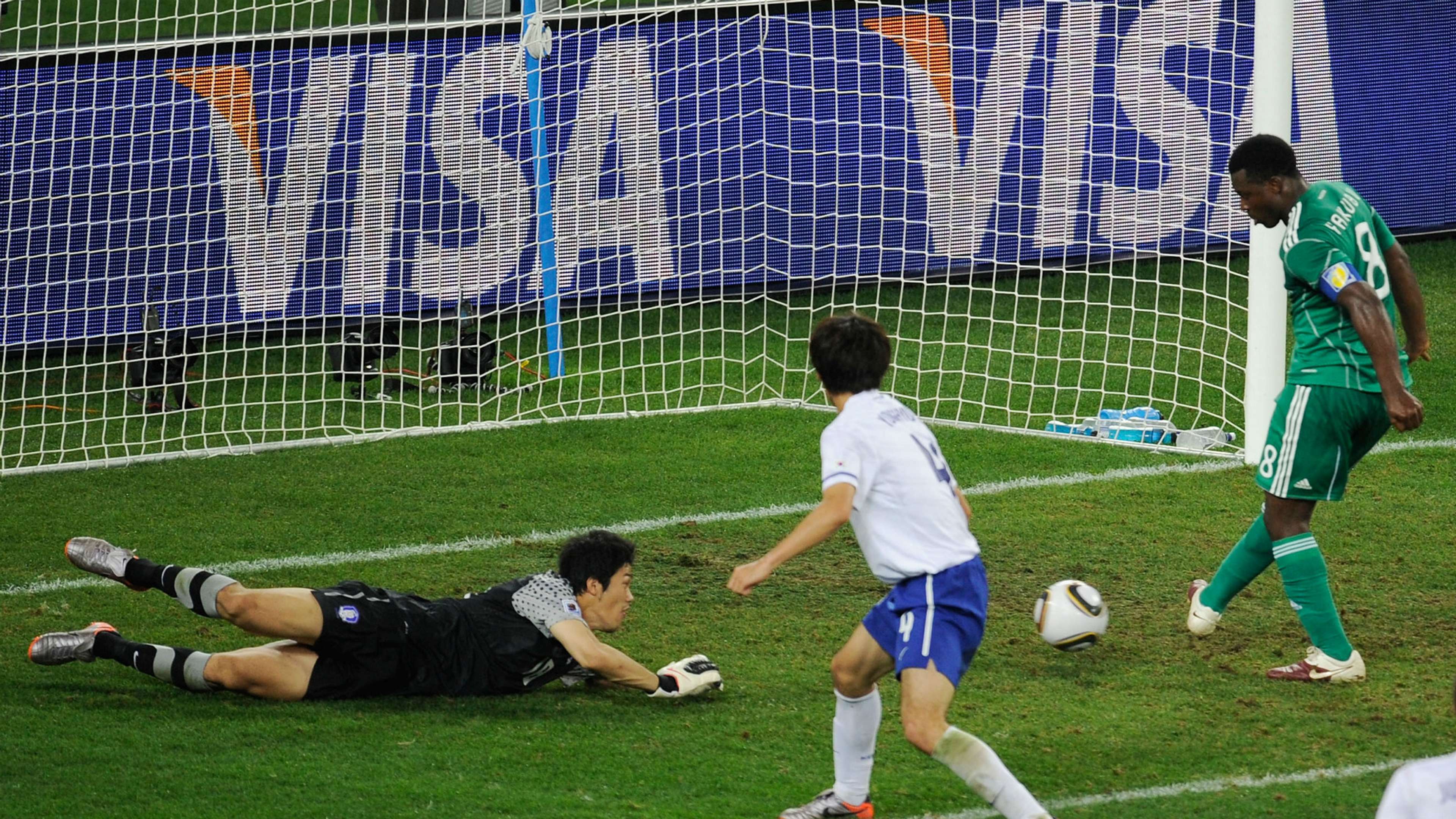

.jpg?auto=webp&format=pjpg&width=640&quality=60)
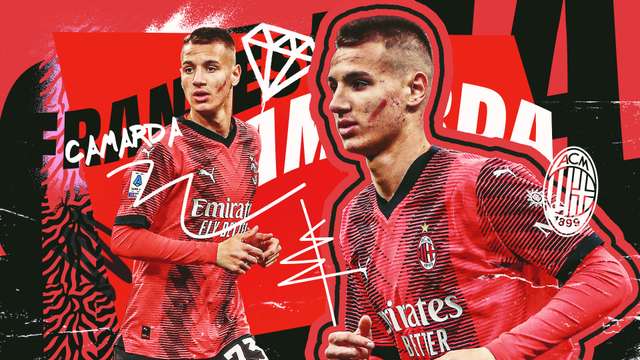
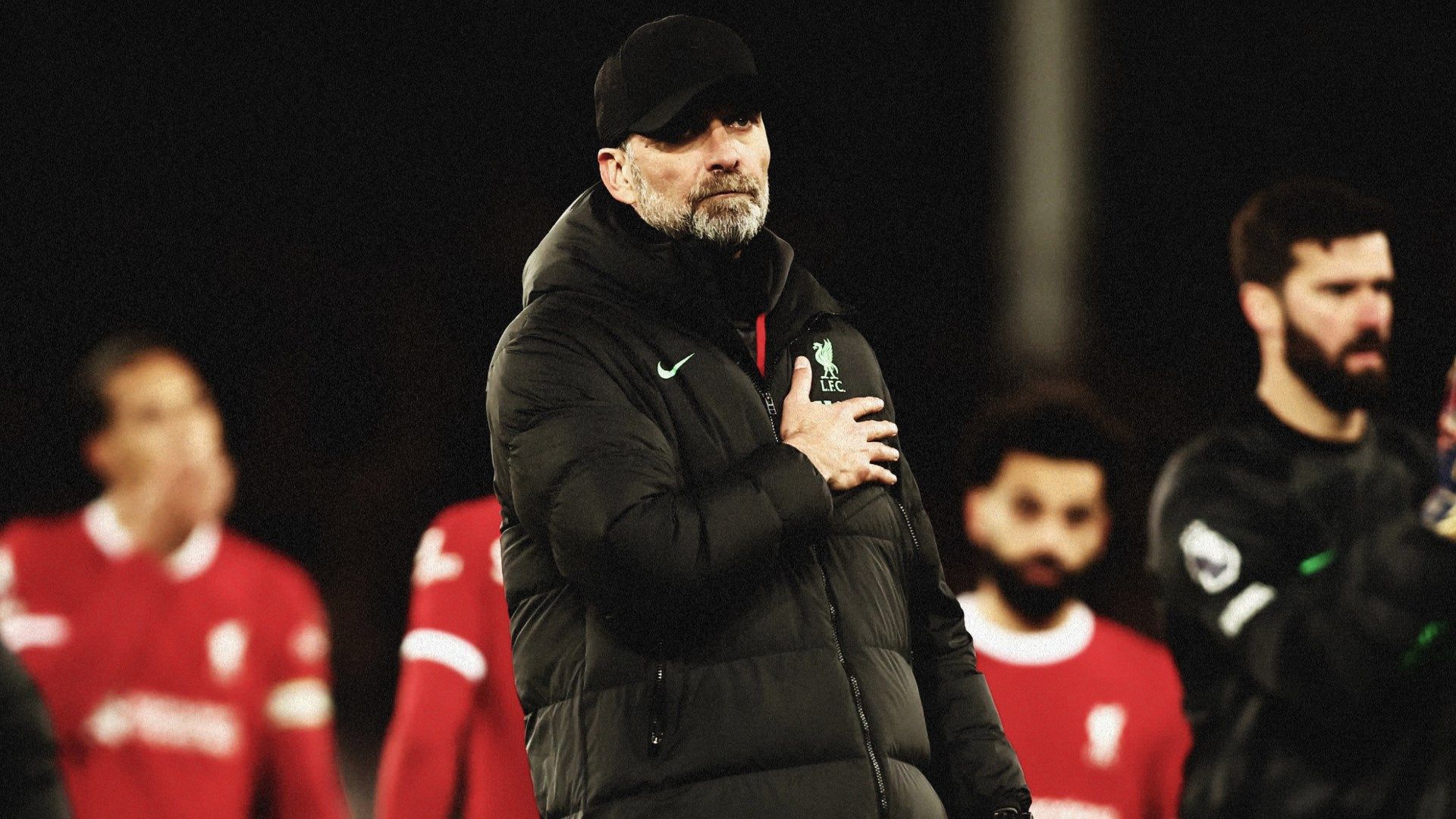.jpg?auto=webp&format=pjpg&width=640&quality=60)